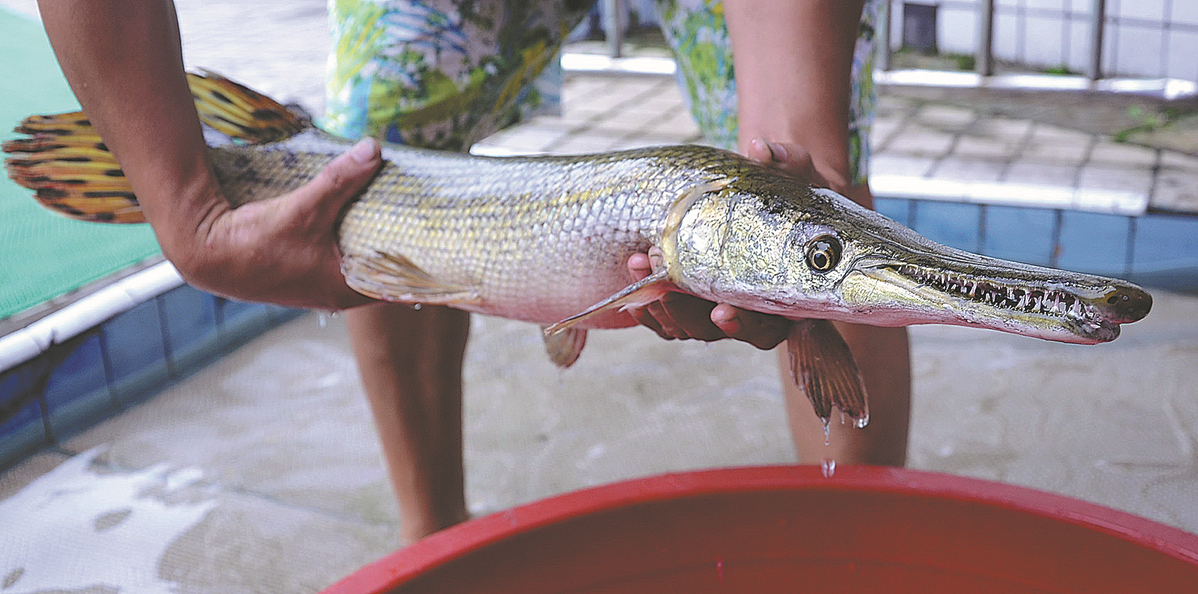Harm of alien species sounds alarm


Authorities caught two alligator gars at the bottom of an artificial lake in the Central Park in Ruzhou city, Henan province, after draining out over 200,000 cubic meters of water on Friday.
Over 30 million viewers watched the whole operation, which was livestreamed. Ultimately, the giant torpedo-shaped, sharp-toothed, black and yellow-patterned "monster fish", one 70 centimeters long and the other 90 cm long, were "neutralized", but people are still discussing them on social networking sites, with many asking if it was worth draining out the entire lake to catch just two fish.
The answer is yes. Of course, it was only after the authorities failed to catch them using fishing rods and nets that they resorted to the rather expensive way. Alligator gars have a ravenous appetite. In 2016, in Foshan city, Guangdong province, two alligator gars in a local businessman's fishing pond devoured 5,000 fish fry in half a month. It was feared that all the fish at the lake in Ruzhou would meet the same fate.
The North American species was imported to China around 20 years ago to be an "aquarium fish" but it soon outgrew the family-sized fish tanks.
Many chose to then release them into natural water bodies; some bought them online to set them free as per their religious beliefs. In the absence of a natural enemy, the population of alligator gars has been growing in China. South China's Pearl River has any number of them.
In 2020, the Ministry of Agricultural and Rural Affairs called for forbidding the release of foreign species, including alligator gars, into natural water bodies. On certain online portals one can still find them for sale.
The Regulation on Invasive Species Management that came into effect on Aug 1 says that those importing, releasing or abandoning imported species should face penalties and, possibly, criminal charges.
It is time to let more people know about this to avoid repeating what happened in Ruzhou.


































